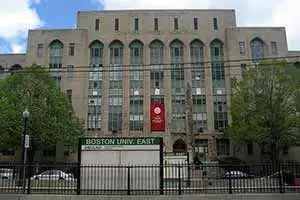Celiac.com 03/29/2013 - Parents of children with food allergies can take heart in recent developments at the federal level that are mandating changes in the ways colleges and universities address food-allergy issues in their students.
 A recent federal civil rights settlement between the Department of Justice and Lesley University that arose from Lesley's failure to provide gluten-free food shows that traditional one-style-fits-all dining options are no longer an option for our institutions of higher learning.
A recent federal civil rights settlement between the Department of Justice and Lesley University that arose from Lesley's failure to provide gluten-free food shows that traditional one-style-fits-all dining options are no longer an option for our institutions of higher learning.
Celiac.com Sponsor (A12):
The settlement requires Lesley to “continually provide” students with gluten-free dining options and pay $50,000 in damages to ensure the university is in compliance with a federal law that protects people with disabilities.
As a result, more and more universities are scrambling to make safe food alternatives available to students with severe food allergies, including those with celiac disease, as required by the under the Americans with Disabilities Act.
This adjustment includes gluten-free food offerings, and colleges and universities in Massachusetts are among the first to attempt the adjustment. Their approaches differ slightly, but the goal is to provide a safe, reliable dining experience to students with food allergies.
The University of Massachusetts Boston and Boston University have created gluten-free zones in cafeterias and food courts, while others are taking a more individual approach. Tufts and Harvard University, for example, are having nutritionists and dining hall staff work with students to figure out what prepared foods can and cannot be eaten and ordering specialty items as necessary.
Tufts' plan also includes establishing a dedicated freezer-refrigerator unit in its two dining halls that is stocked with gluten-free foods. The units are kept locked, and only students with special dietary needs are given keys
UMass Amherst publishes dining hall menus online, and identifies gluten-free offerings with a special icon. The school also has an extensive handout on what foods to avoid and whom to contact if students need gluten-free food.
About a year ago, UMass Boston created a gluten-free zone in its food court, with a dedicated refrigerator, microwave, and toaster to minimize the risk of contamination.
Look for the trend to continue as more and more colleges deal with the new legal realities of feeding students who have food allergies.
Sources:
- Open Original Shared Link
- Open Original Shared Link








Recommended Comments